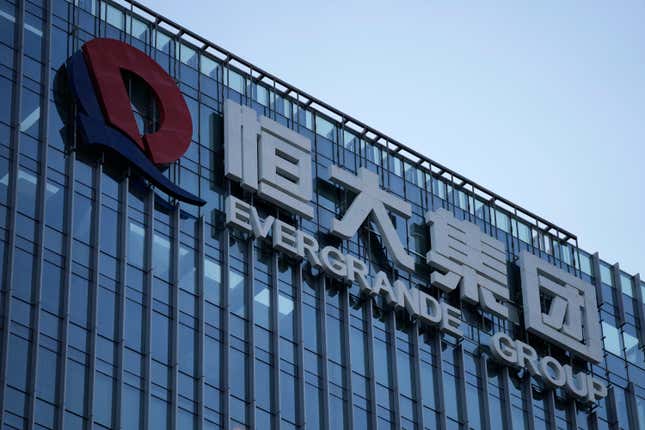
HONG KONG (AP) — A Hong Kong court postponed until Jan. 29 a court hearing scheduled for Monday on troubled Chinese property developer Evergrande’s winding-up petition.
Evergrande is trying to win support from its creditors for a plan to restructure more than $300 billion in debt to stave off liquidation. The company’s lawyer told the court it was requesting an adjournment to “refine” its new debt restructuring plan.
The Hong Kong High Court has postponed the hearing over Evergrande’s potential liquidation several times. Judge Linda Chan had said in October that Monday’s hearing would be the last before a decision is handed down.
Evergrande could be ordered to liquidate if creditors reject its plan.
The company, the world’s most indebted property developer, ran into trouble when Chinese regulators cracked down on excessive borrowing in the real estate sector.
Neil McDonald, a lawyer at Kirkland and Ellis which represents a group of creditors, described the adjournment as a “surprise.”
Evergrande's Hong Kong listed shares rose as much as 20% Monday and were up 9.2% in the afternoon.
On Monday, the company issued a statement refuting claims in a report by Hong Kong-based GMT Research that Evergrande was never profitable and had overstated its revenue for years.
Evergrande said GMT's report was “without basis." It said it would provide more clarification in due course.
Last month, the company said Chinese police were investigating Evergrande’s chairman, Hui Ka Yan, for unspecified suspected crimes in the latest obstacle to the company’s efforts to resolve its financial woes.
In September, Evergrande abandoned its initial debt restructuring scheme after authorities banned it from issuing new dollar bonds, which was a key part of its plan.
The company first defaulted on its financial obligations in 2021, just over a year after Beijing clamped down on lending to property developers in an effort to cool a property bubble.
Evergrande is one of the biggest developers to have defaulted on its debts. But others including Country Garden, China’s largest real estate developer, have also run into trouble, their predicaments rippling through financial systems in and outside China.
The fallout from the property crisis has also affected China’s shadow banking industry — institutions which provide financial services similar to banks but which operate outside of banking regulations.
Police are investigating Zhongzhi Enterprise Group, a major shadow bank in China that has lent billions in yuan (dollars) to property developers, after it said it was insolvent with up to $64 billion in liabilities.
Real estate drove China’s economic boom, but developers borrowed heavily as they turned cities into forests of apartment and office towers. That has helped to push total corporate, government and household debt to the equivalent of more than 300% of annual economic output, unusually high for a middle-income country.
To prevent troubles spilling into the economy from the property sector, Chinese regulators reportedly have drafted a list of 50 developers eligible for financing support, among other measures meant to prop up the industry.